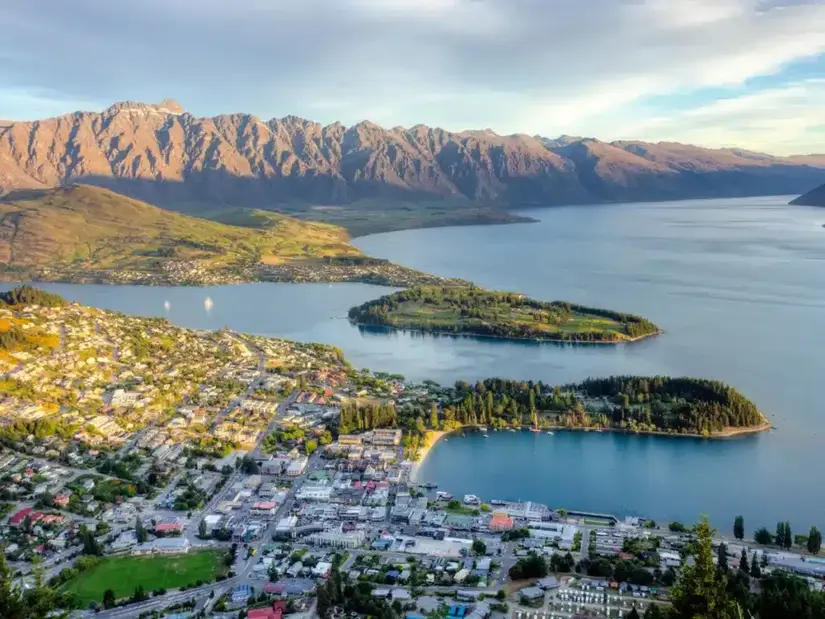If you’re thinking of retiring overseas, New Zealand can be a good fit. If you are considering to retire in New Zealand, this article is for you.
If you have any questions or want to invest as an expat or high-net-worth individual, you can email me (advice@adamfayed.com) or use these contact options.
Table of Contents
Introduction
Geographically, the nation has a diverse range of landscapes to offer. Whether you enjoy swimming, hiking, or traveling, there’s a good chance you’ll never run out of fun things to do. And if English is your first language, you won’t need to acquire another to retire in New Zealand. However, while the country has certain appealing features, it has a greater cost of living than the United States and fewer visa possibilities for retirees. Whatever you need to know regarding retiring in New Zealand is outlined here. Remember that a financial adviser can assist you in developing a retirement plan that matches your needs.
What Is the Cost of Retiring in New Zealand?
According to Numbeo, a website that gathers and analyzes worldwide cost of living statistics, the cost of living in New Zealand is approximately 9% greater than in the United States. However, Numbeo also reveals that the cost of rent is around 15.64 percent cheaper than in the United States. To live comfortably in New Zealand, you may need much more than average Social Security payout (approximately $1,540). Non-residents may also be subject to income tax on their pensions.

Even if the rent is less expensive, the visa procedures and living costs alone might cost you a lot of money. Depending on the kind of visa you choose, the application price might be as high as NZ $3,310 (about US $2,316). We go through your retirement visa choices in more detail below.
Requirements for Obtaining a Visa
For individuals considering retirement in New Zealand, there are two visa alternatives. Both of these alternatives allow you to involve your spouse in the application process. The Temporary Retirement Visitor and Parent Resident Retirement visas are the two options. For the former, you must be at least 66 years old and have a two-year investment of NZ $750,000 (about $524,835) in New Zealand. You’ll also need to show that you have a yearly income of at least NZ $60,000 (about $41,987), plus another NZ $500,000 (approximately $349,890) to live on. The visa is valid for two years and can be renewed. It also prohibits you from working while allowing you to travel in and out of New Zealand for the next two years.
The Parent Resident Retirement visa, on the other hand, has some significant changes. For starters, you’ll need to show that you have an adult kid who is a New Zealand citizen or resident. However, the financial requirements for this plan are significantly greater. This option requires a minimum yearly income of NZ $60,000 and an investment of NZ $1 million (about US $699,780) over a four-year period. In addition, documentation of NZ $500,000 in living costs is required for the visa. After four years, you will be able to apply for permanent residency in New Zealand. This plan, on the other hand, differs in that it permits you to work and study without any restrictions.
Housing and Food Cost in New Zealand
Housing in New Zealand is less expensive than housing in the United States. However, this does not imply that renting in New Zealand is inexpensive. A one-bedroom apartment in the city center may cost around NZ $1,619 (approximately US $1,132), while a three-bedroom apartment in the same neighborhood may cost around NZ $2,609 (approximately US $1,825). You may pay between NZ $1,267 (about $886) and NZ $2,132 (approximately $1491) for a one- or three-bedroom apartment outside of the city core.
Food and groceries will cost you more than they would in the United States. According to Numbeo, a three-course lunch for two people in a mid-range restaurant would cost around NZ $100 (around US $70). A similar dinner in the United States, on the other hand, would cost roughly $60. However, like in other nations, prices vary depending on where you live. These are only a handful of the variables that influence your budget.
Healthcare in New Zealand
New Zealand people have access to a variety of health-care choices. These include both governmental and private health-care systems. Residents receive discounted or free health care since taxes fund public health care. Individuals holding a dwelling class visa are also entitled to free or subsidized health care in New Zealand. However, if you have resident status, you must also register with a general practitioner (GP) before you may get public health care. You will then have access to a variety of free and subsidized medical treatments, but you may still be required to pay for non-subsidized things.
It’s possible that private healthcare will be more expensive. If you don’t have an adult kid in New Zealand, you’re probably better off choosing international health coverage because you’ll require resident status for this choice. You could also look at local health insurance companies.
However, it is worth mentioning that New Zealand has been one of the most efficient countries in the world in combating COVID-19. According to a New York Times database, the country of five million people recorded fewer than 3,000 total illnesses and 26 deaths by sealing its borders and establishing severe lockdowns as of August 2021.

Is It a Good Decision to Retire in New Zealand?
New Zealand may not be the greatest option if you’re seeking a retirement place where you can live comfortably on less than $1,540 per month. Though the nation has beautiful scenery and pleasant weather, the cost of living is higher than in the United States. You’ll need around NZ $750,000 (US $524,835) to invest, plus another NZ $500,000 (US $349,890) for living costs to qualify for its Temporary Retirement Visitor visa. This visa also needs confirmation of a minimum yearly income of NZ$60,000 (about $41,987).
Your Social Security payment may not be enough to finance your retirement in New Zealand. You’ll also require the temporary visa application if you don’t have an adult kid who is presently a resident of New Zealand. Furthermore, you will be unable to work in the nation while on the temporary visa. You can only work on the Parent Resident Retirement visa. So, when you are contemplating retirement in New Zealand, you should assess whether the country’s cost of living, visa restrictions, and healthcare correspond with your financial objectives.
Conclusion
If you’re seeking for an affordable retirement but don’t want to leave the nation, it’s critical to consider the cost of living in each place. When it comes to retirement planning, the advise of an expert is always beneficial. A financial adviser can help you accomplish your retirement savings objectives through investment strategies, portfolio diversification, or personal finance advice.
Pained by financial indecision? Want to invest with Adam?

Adam is an internationally recognised author on financial matters, with over 760.2 million answer views on Quora.com, a widely sold book on Amazon, and a contributor on Forbes.



